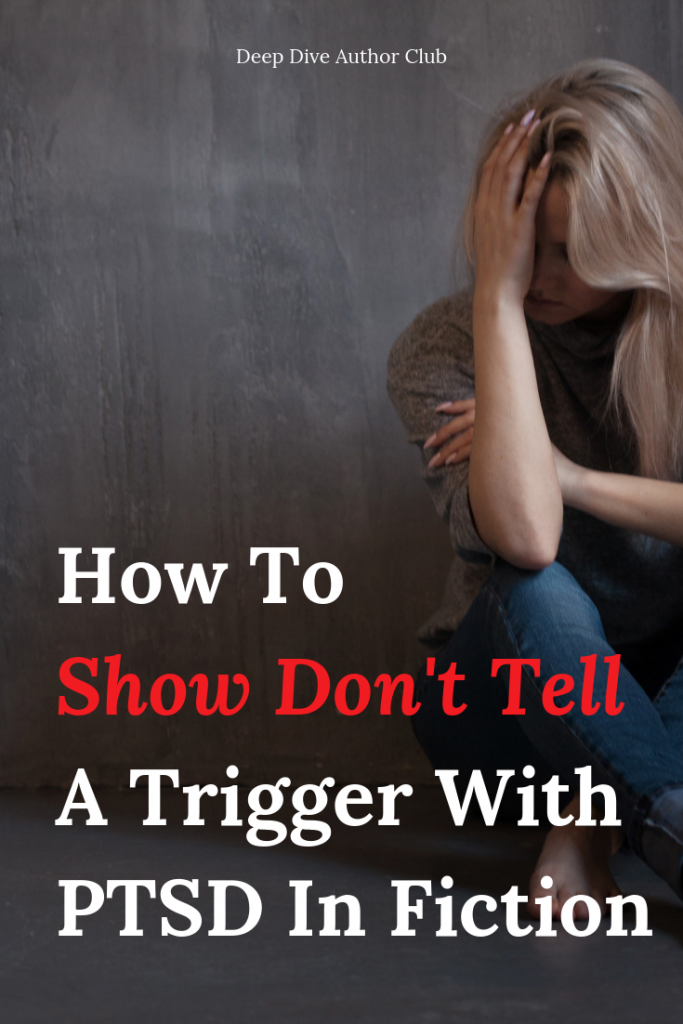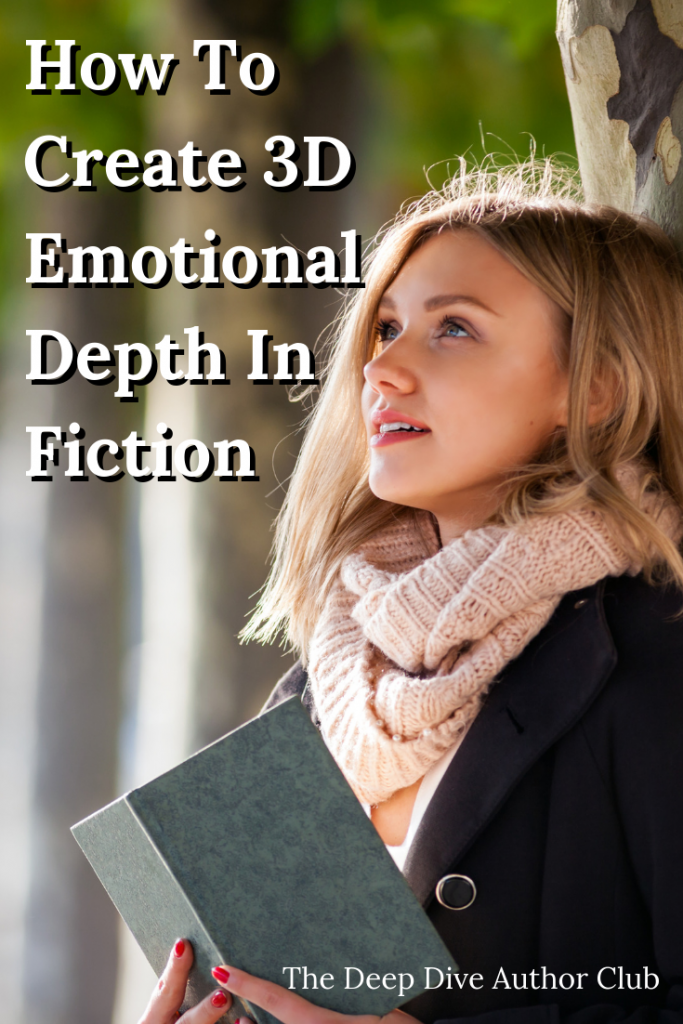
Emotions are hard to capture authentically in fiction, maybe in part because as a society we tend to want to express things more in terms of what we’re doing or thinking. This diving deep into the raw humanity expressed through emotions is the power of deep point of view.
Emotions are hard and uncomfortable and sometimes inconvenient and there’s an inherent vulnerability in writing — in good writing — where the writer lays bare her own heart for readers in a variety of ways.
I’m an avid student of psychology and learning how emotions work intrigues me, so being able to authentically capture all this for my readers is important to me. And if you’re here on this blog, I know it’s important to you too because that’s kinda… I mean *smile* that’s what I blog about alot. What I’ve been digging into recently is trying to better understand how emotions work, how much predictability there is in terms of the consequences of past events on adult behaviour, and the dichotomy between what’s expressed outwardly (what’s observable to others) and what’s said and felt internally.
To that end, here are four aspects of writing emotions that I’ve focused on with my characters with good results. You might not use/need all of these for any one novel or even a character, but they are tools to keep in your pocket and pull out if you’re stuck or struggling how to convey an emotion authentically.

All The Girls At The Table
A friend (who’s a counsellor) described this idea of the girls at the table which she uses with her clients and it really resonated with writer-me. When emotions for your character get hot, confusing, sad, overwhelming, uncomfortable, create foggy thinking — get curious as Brene Brown would say. What’s driving those emotions for your character? Whether your character has enough self-awareness or personal insight to figure it out or not, you need to know. Why do they feel like this? Why does this hurt? What are they really upset about? Why don’t they want to be here?
This can be transformative. Get curious about your character’s emotions. Why are they feeling that way? Why don’t they want anyone to know they feel that way? What are they afraid of?
Now, add in my friend’s advice. Sit down with all the girls at the table. For every hurt moment or traumatic event in life, imagine that kid (girl or guy) at the table. Each traumatic event or hurtful moment adds another seat at the table of the heart. That group, collectively and individually, influences which past events are triggered in the present. Ask that kid – why are you afraid? What are you trying to hide? You’re hurt about this — but what does this really mean?
I have a character who’d made plans for a vacation with a close friend, and the close friend had to bail at the last minute (legitimate reason) but my character was devastated by this. The reaction wasn’t in line with what had happened so as the writer, I had to get curious. Why was this so hurtful? I realized the hurt was legitimate disappointment about not going on the trip but there was something more. There was a kid at the table slumped in her seat, arms folded over her chest, kicking her feet against the legs of the chair. That friend routinely cancelled, for always legitimate reasons, and there were past disappointments at play.
Another kid at the table cried. This was a younger still kid, she remembered that many many times her needs were ignored, overlooked, told they didn’t matter as much as someone else’s. THAT’s the kid causing the tears because once again she had felt unimportant, not a priority, passed over. Once you have this information, you can express the primary emotions at play with visceral authenticity that will capture your readers. Read more about primary and secondary emotions here.
Feelings Aren’t Facts
Feelings and emotions can’t always be trusted. As someone who struggles with foggy thinking at times because of a post traumatic stress injury, this has become super important to remind myself of.
Just because I feel a certain way, doesn’t mean that feeling is true or trustworthy. Because there’s a lot of past experiences and prejudices at play (see above with all the girls at the table) that can influence, skew, and colour my perception of what’s going on around me or being said (or not said).
This is important to understand, because emotions and feelings power our goals, motivations, and priorities. Where does your character’s feelings lead them astray? How does their past influence them to incorrectly evaluate a situation or threat? At what point do they realize their feelings may not be trustworthy in any given situation or recurring circumstance? What are the consequences of the thinking based on feelings that can’t be trusted? OOooh – tell me you can see all the conflict that potentially arises from this?

Emotions Aren’t Stable
Being emotionally stable is nebulous though highly sought after. We tend to avoid people we perceive to be emotionally unstable. Here’s the thing though, we’re all emotionally unstable at times and our characters can’t always have it all all together either. Just as feelings aren’t facts, emotions are neither static nor linear. Some days our emotions bounce from one conflicting emotion to another like a ping pong ball. We have what’s called a “window of tolerance” and anyone can be pushed out of their window of tolerance (the ability to function, perceive, and integrate information and emotions effectively) at any time.
Those perceived as emotionally unstable are often individuals with a narrower window of tolerance. However, a car accident will push you out of the window of tolerance. A sudden death in the family or a close friend will likely push you out of the window of tolerance. Those with anxiety or traumatic injuries will likely have a narrower window of tolerance and a learned response to certain triggers (hyper arousal -fight or flight- or hypo arousal – freeze).
Most of the time, as writers, we craft a situation (or several situations) in a story where we push our characters out of their window of tolerance which means they’ll be emotionally unstable. Be authentic with that. Let there be consequences to that. Let them learn from that. Will that experience narrow or widen their window of tolerance? Hmmm…
Emotions Are Subtle And Nuanced
Speaking of wide brushes, I hope I’ve made a case for drilling down into why a character feels a certain way, determining how much intergrity those feelings have, and the natural consequences of that unique blend of factors combined with a character’s past experiences, prejudices, goals, and motivations. If you’re able to know your characters well enough to have all this sorted, then deep point of view is going to intensify your fiction and grab your readers by the throat!
Not every emotion your character feels needs to be BIG. Not every decision needs to be based on a BIG emotion. Sometimes we’re ruled by emotions we refuse to acknowledge but are readily picked up on by others. Avoid the easy road with your fiction. These are really simple factors that when combined create endless possibilities. It’s the possibilities that make each character unique.
Not every character needs to be thought through to this level, but certainly your protagonist and antagonist do.
Which character(s) from your favourite book or movie had an emotional journey that really resonated with you?
Been told you should learn Deep Point Of View? Had an editor or critique partner tell you to “go deeper” with the emotions in your fiction? Looking for a community of writers seeking to create emotional connections with readers? Check out the Free Resource Hub and then join the Going Deeper With Emotions In Fiction Facebook group.
Writing into these deep places with my two main characters is so goddamned hard to get through. I have to emotionally wound them to get pushed to a place of realization. This wounds me as I write these too. I struggle to get through these vignettes. I am a man and these still make me weep. It takes time to get these characters through what they need to get through. This can be damn tough sledding. Is this a normal process. Have you experienced this too?
You know you’re doing it right when it’s really hard. Make sure to build in some breaks to give yourself some emotional space from these hard scenes. Go for a walk. Exercise. Whatever helps reset your mind so you don’t live there when you’re not writing. That’s my best advice.